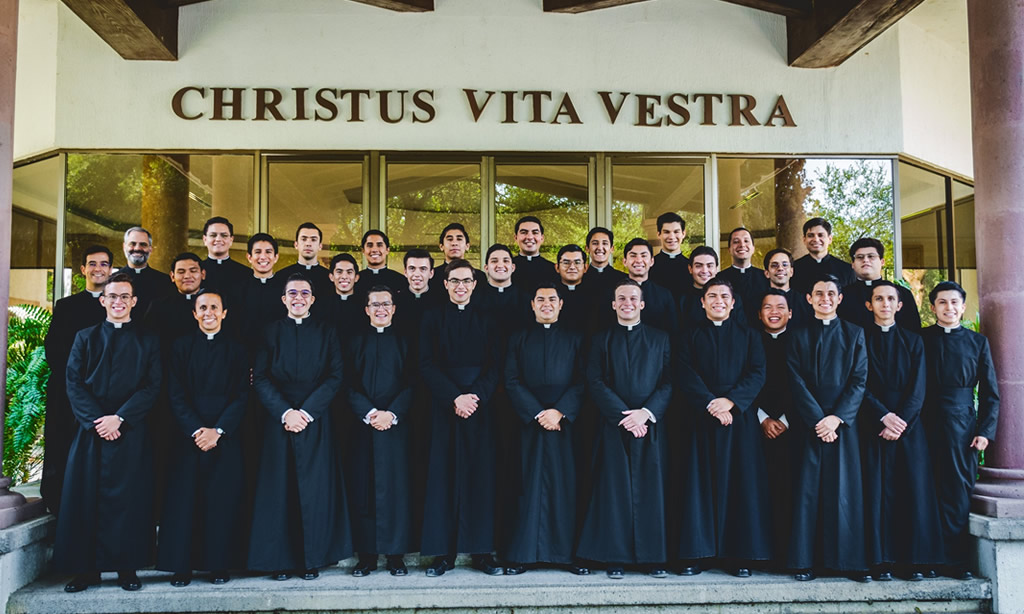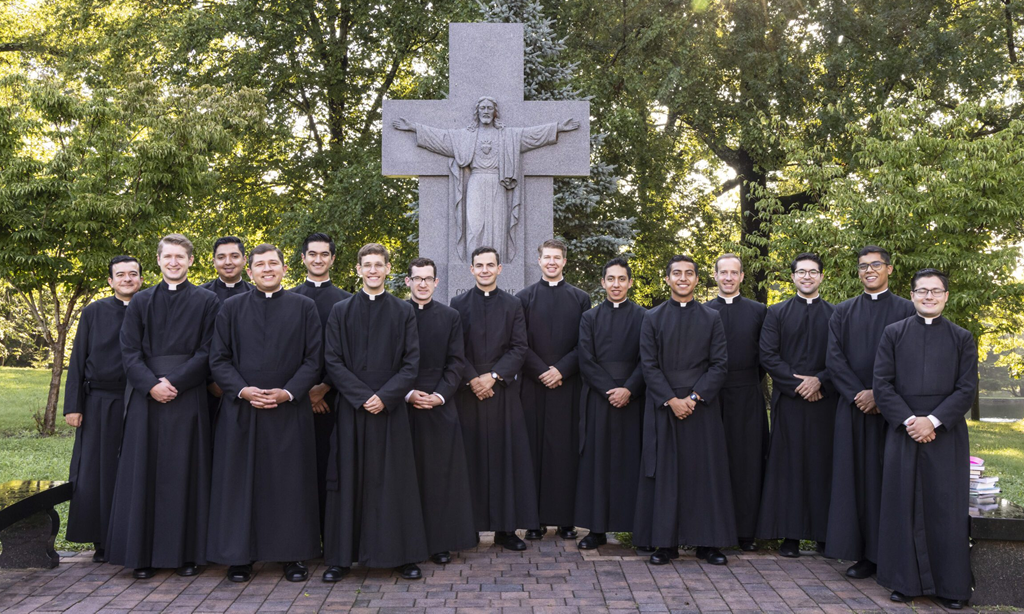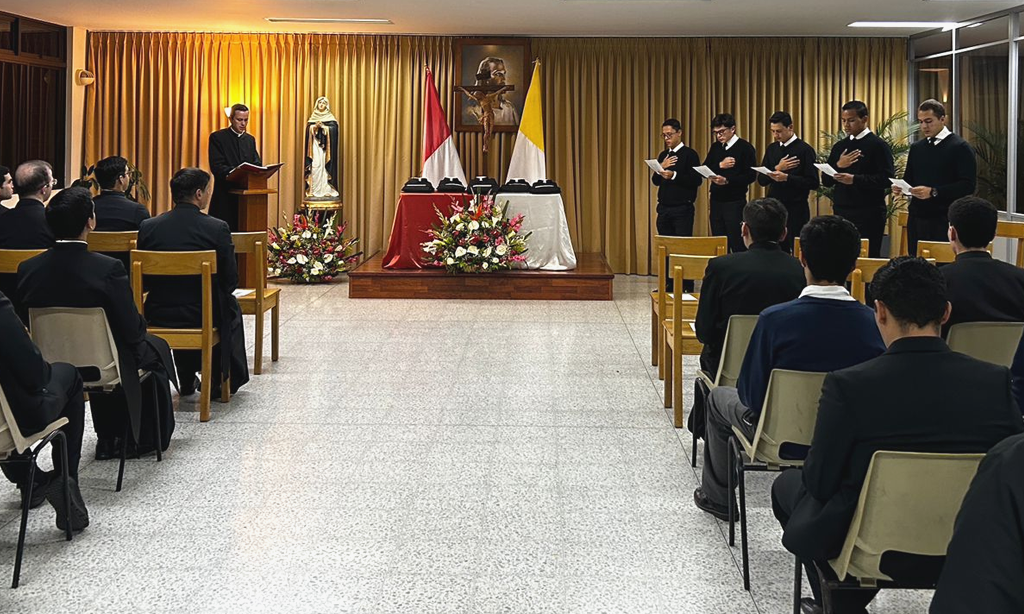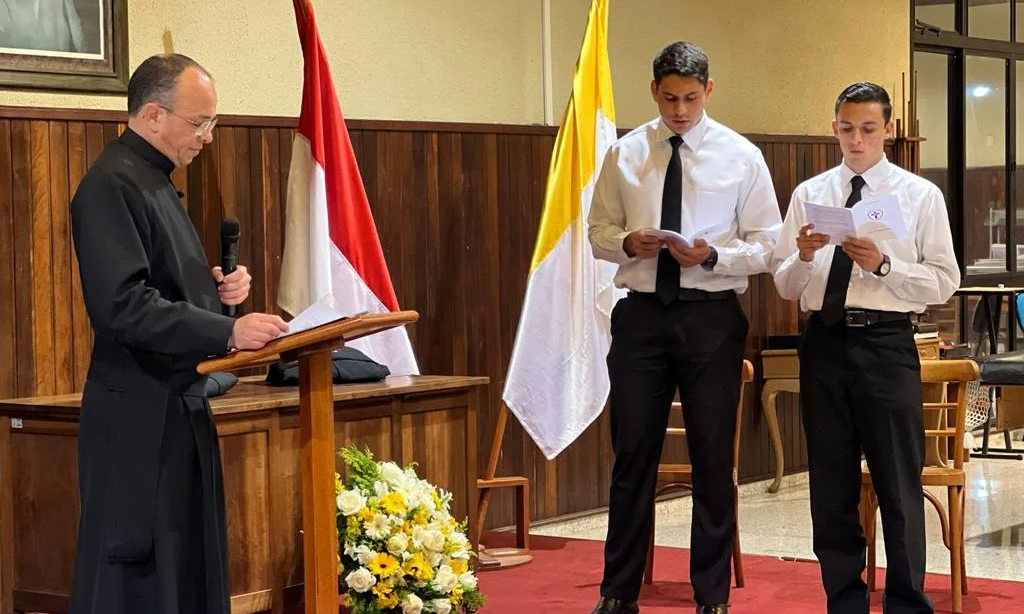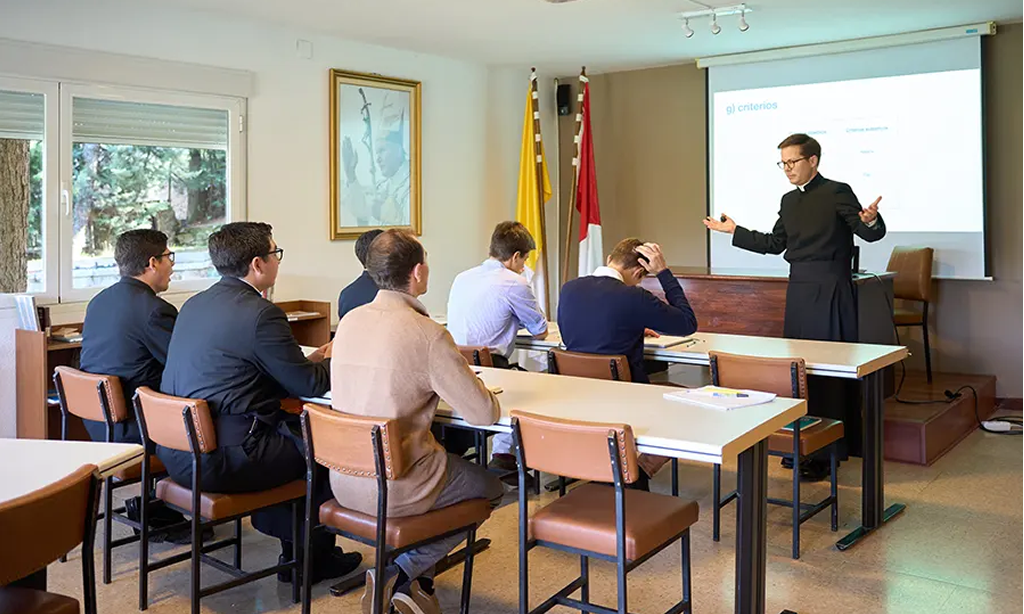It is the stage prior to the novitiate, usually carried out in the novitiate house, with an appropriate program and without living in community with the novices; or, in exceptional cases, in another house of the Congregation. This is where they get to know the nature of religious and priestly life, as well as the life, spirit, and apostolate of the Congregation and of Regnum Christi.
Stages of Formation

— The Constitutions of the Congregation of the Legionaries of Christ, 64.
Novitiate
— The Constitutions of the Congregation of the Legionaries of Christ, 71-74.
Novitiates in the world
Humanities
After the Novitiate, “a Legionary advances to a stage marked by a more intense dedication to study. He devotes a great part of his time and energy to this undertaking in order to acquire solid bases of general culture that enrich his understanding of the world and of man, whom he will serve as a “minister of Christ Jesus” (Romans 15:16)”¹. “The stage of humanities marks the beginning of a Legionary’s time of study. Through their studies, Legionaries are personally enriched and prepared for the mission. These studies are aimed at understanding the heritage of truth, beauty and goodness handed down to us as an inheritance and as an answer to the principal existential questions of mankind”².
— Ratio Institutionis «Christus Vita Vestra», 755, 767.
Philosophy
“A crucial stage of intellectual formation is the study of philosophy, which leads to a deeper understanding and interpretation of the person, and of the person’s freedom and relationships with the world and with God.” After studying art and literature, the time comes to approach some of the same humanistic themes from a logical-rational point of view. This, in turn, prepares the way for the study of theology and the discovery of the mysteries of God and of man seen in the light of Christ. The study of philosophy helps its students to develop a “love of rigorously searching for the truth and of maintaining and demonstrating it, together with an honest recognition of the limits of human knowledge.” From a pastoral perspective, it fosters “careful attention to the necessary connection between philosophy and the true problems of life.”
— Ratio Institutionis «Christus Vita Vestra», 780, 781.
Internship
“This period of formation is the moment for the Legionary to put into practice all the formation he has received, as well as a time of profound human enrichment in which the religious should grow in “apostolic zeal, militancy, responsibility, integrity and teamwork” (CLC 104)”¹. “the apostolate allows us to open our eyes with realism to the integral truth of our personal and Legionary mission and identity. The young religious has great ideals and probably wants to bring them about quickly, becoming an expert right away and bearing abundant visible fruits. He must learn to walk the long path of human success and failures — for with God there is no failure when love has been sown — that will help him to mature as a man, a religious and an apostle, and live with deeper theological virtues.”².
— Ratio Institutionis «Christus Vita Vestra», 796, 798.
Theology
“Through study, especially the study of theology, the future priest assents to the word of God, grows in his spiritual life and prepares himself to fulfill his pastoral ministry”¹. “It is up to each religious to give his theological studies their due importance — desiring, in light of his experiences of the apostolate and upcoming ordination, to possess ‘a complete and unified vision of the truths which God has revealed in Jesus Christ and of the Church’s experience of faith’”². “The study of Sacred Scripture is the soul of theology and should inspire every theological discipline. Biblical formation should thus be given its due importance, with the opportunity given for learning or consolidating the biblical languages of Hebrew and Greek”³.
— Ratio Institutionis «Christus Vita Vestra», 851, 852, 855.
Diaconate
“The Church wants those preparing for the priesthood to live first as deacons, to teach them that service is essential to the ordained ministry. Through the imposition of the hands by the bishop, the deacon is consecrated to “serve in the diaconia of liturgy, word, and charity.” He fulfils this mission of service especially when he prays the Liturgy of the Hours in the name of the Church, be it personally, in community or on the apostolate; when he collaborates with the priests at the altar and the pulpit; and when he carries out acts of charity”¹. “During the diaconate the Legionary should become familiar with pastoral ministry, preparing for priestly ordination with a prayerful spirit rooted in his relationship with Christ”².
— Ratio Institutionis «Christus Vita Vestra», 838, 839.
Priestly ministry
““Our priestly life and activity continue the life and activity of Christ himself. Here lies our identity, our true dignity, the source of our joy, the very basis of our life.” For a young priest, ordination is the crowning moment of a long process of personal formation. The time has come for him to put all that he has learned and lived into practice, to dive deeper into the Legion and to assume greater responsibilities within it.”¹. “A priest is allowed to enter the depths of the human heart, above all through Confession and spiritual direction. This novelty, proper to the priestly experience, raises new challenges and opportunities for a Legionary’s integral formation.”²
— Ratio Institutionis «Christus Vita Vestra», 872, 873.
“Saint Paul exhorted Timothy: “Do not neglect the gift you have” (1 Timothy 4:14; see 2 Timothy 1:6). It is necessary to return often to the gift received from God: “Meditate on what you celebrate,” the Church tells priests in the rite of ordination. These words offer him a privileged means of protection from routine, keeping him from getting used to the graces that pass constantly through his hands.”¹. “To further his identification with Christ, each priest should find his own way of growing in his intellectual formation according to his possibilities and interests. Among other things, he can seek a degree or title by enrolling in officially organized courses, participate in remote courses, or follow a program of reading related to his apostolate or integral formation”².
— Ratio Institutionis «Christus Vita Vestra», 882, 885.
“At certain points along his path, a priest needs more intense dedication to and more adequate means for his spiritual renewal — moments to put everything else aside and give priority to being with God in prayer, sharing in fraternal life, growing in his dedication as a consecrated person and restoring his strength for the mission entrusted to him (see CLC 115). The time of renewal should help him recognize and understand the natural changes of human life (physical, physiological, emotional) and the work of God in his own. It should help him integrate the human, spiritual, and apostolic experiences of his years of priesthood in order to promote his continued growth in personal maturity.”
— Ratio Institutionis «Christus Vita Vestra», 891.



